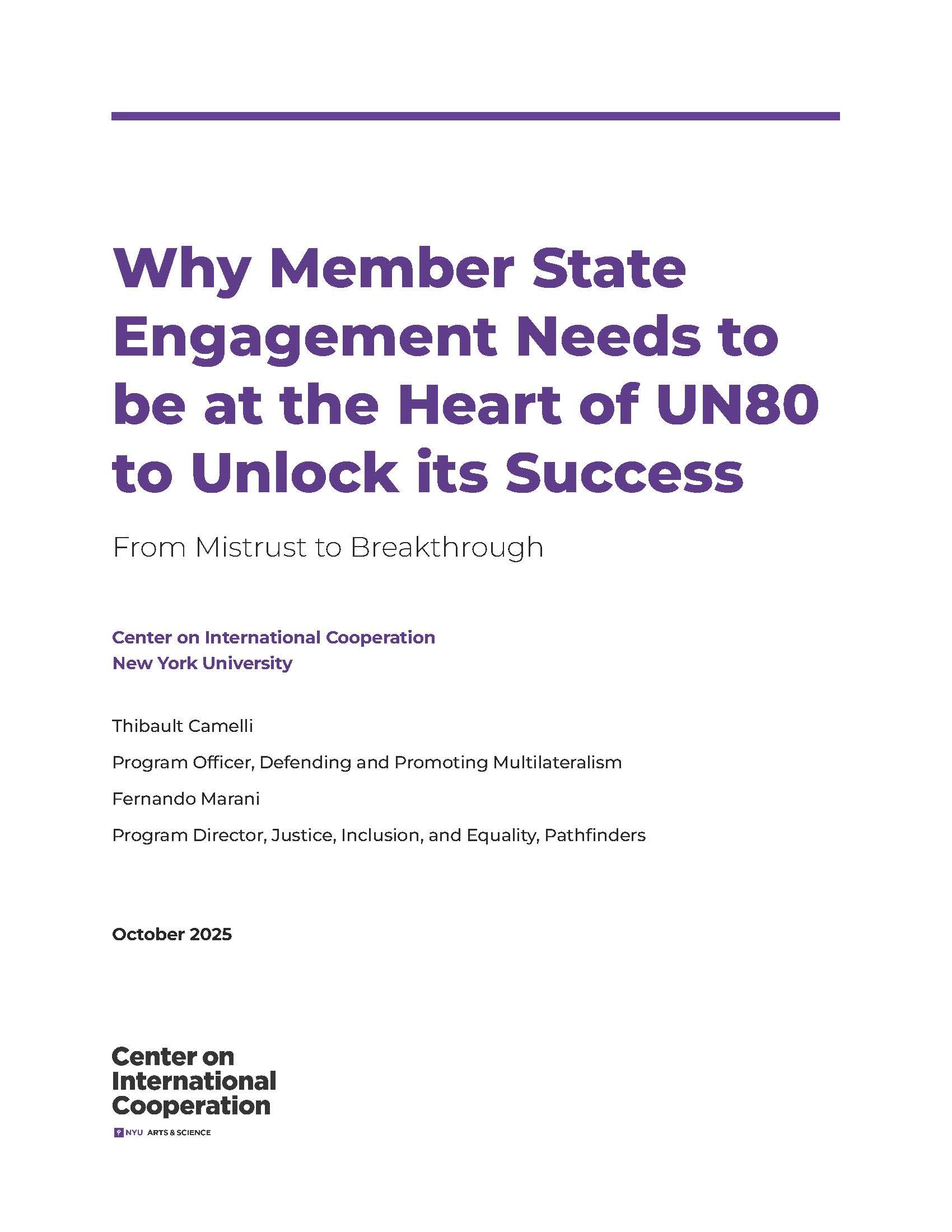Six months after its launch, the Secretary-General’s “UN80” reform initiative is still widely seen as lacking meaningful and systematic member state engagement. This perception has created distrust among delegations, weakened political traction, and hampered momentum as the Secretary-General’s term is drawing to a close. As the world leaders gathered in New York for the “General Debate” at the end of September to launch the 80th session of the United Nations (UN) General Assembly, very few actually mentioned reform. More striking even, the few who did lamented a process they essentially regarded as technocratic, administrative, and internal to the Secretariat. Without a clear role for delegations, permanent representatives, and capitals, the process risks lacking legitimacy and member states’ ownership.
The main challenge is the absence of deliberate design. The fragmented UN governance—across mandates, committees, boards, and subsidiary bodies—results in an already arcane system, not unusual for UN Reform, but challenging for delegations to navigate. However, it is not inevitable. Entry points exist to anchor reform legitimacy, align processes, and mobilize capitals. Experience from previous cycles, from the 2005 World Summit follow-up to the 2017 repositioning of the UN development system, shows that reforms only gained traction when member states were explicitly engaged through regular political dialogues, articulated with a strong political leadership from the Secretariat.
Strategic adjustments are both urgent and feasible. This paper proposes a member state engagement toolkit across four dimensions: substance, scope, modalities, and dynamics. Recommendations include appointing permanent representatives as focal points, creating light coordination mechanisms, convening regular cross-regional dialogues and feedback loops, and empowering decision-shapers through targeted support and structured briefings. Such measures would not only enhance ownership but also reduce political risk for the Secretary-General by spreading accountability across the membership.
The window for recalibration is narrow but real. In the immediate aftermath of High-Level Week launching the 80th session of the General Assembly, there is still time to build shared ownership of the UN80 reform. Credible engagement is not just a procedural improvement but a political necessity. Without it, the initiative risks being seen as Secretariat-driven, reinforcing doubts about whether the UN can apply to itself the same principles it promotes to others.
To address these risks, this paper sets out a practical toolkit of 10 recommendations for strengthening member state engagement in UN80. The recommendations are structured across four dimensions (substance, scope, modalities, and dynamics). A distinction was also made between measures that require Secretariat action and those that depend on the authority of the President of the General Assembly and member states. Taken together, they outline both immediate adjustments for the UN80 cycle and longer-term reforms to embed engagement more systematically. Table 1 below summarizes these recommendations.
To operationalize these 10 recommendations beyond the four dimensions that helped identify them, we reframed them into three overarching priorities that capture the essential conditions for reform to succeed:
- Ensure transparent information flows: information is the foundation, as predictable updates and clear pathways allow delegations and capitals to prepare and engage.
- Mobilize political leadership: leadership is the driver, as permanent representatives and capitals must convert information into political traction and coherence.
- Sustain effective oversight: oversight is the guarantor, as decision-shapers require tools to monitor implementation and maintain accountability.
Read together, these three priorities provide a coherent logic to ensure effective member states engagement, and a simple structure for assessing whether UN80 is on track.





